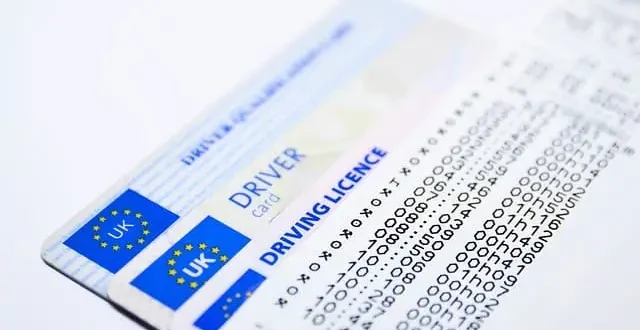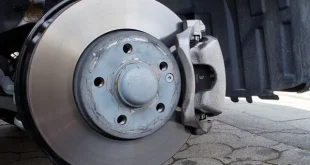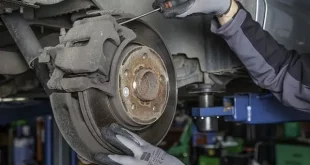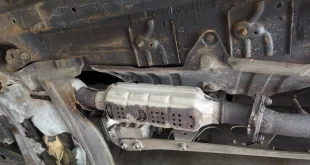How long does it take to get a CDL in Texas? Obtaining a Commercial Driver’s License (CDL) in Texas is a process designed to ensure drivers meet specific safety and knowledge criteria before they can legally operate commercial vehicles. This process, while straightforward, involves several steps and a commitment to both learning and practical experience.
Here’s a comprehensive look at how long it takes to get a CDL in Texas, integrating key information sources .
Eligibility and Documentation
To be eligible for a CDL in Texas, candidates must be at least 18 years old for intrastate driving and 21 for interstate driving. A valid Texas driver’s license is required, along with proof of U.S. citizenship or lawful presence, Texas residency, a Social Security Number, and, if applicable, Texas vehicle registration and proof of insurance. Fulfilling these requirements is the first step towards your CDL journey.
The Two-Stage Process to Acquiring a CDL
1. Obtaining a CDL Permit:
To get your CDL permit, you must pass a knowledge test which covers general trucking knowledge, air brakes, and combination vehicles. Preparation for this test can be supported by studying the Texas CDL Handbook. The permit, which costs $26, allows you to practice driving commercial vehicles under supervision. It’s valid for 180 days, giving ample time for hands-on learning.
2. Upgrading to an Official CDL:
After holding the permit for at least 14 days, candidates must complete Entry-Level Driver Training (ELDT) from an FMCSA-approved provider. This training, which can cost between $1,000 to $5,000, covers both classroom and practical aspects of commercial driving. Following ELDT, candidates must pass a skills test, which includes vehicle inspection, basic control, and a road test, to finally obtain their CDL.
Duration and Costs
The entire process from obtaining a permit to receiving a CDL can take approximately 1 to 2 months, depending on the individual’s ability to pass the tests and complete the training. The costs involved include the permit fee, endorsement tests (if applicable), ELDT program fee, and the CDL fee itself, which totals around $98 for individuals aged 18-84.
Sources like the Drive-Safely.net and the Texas Department of Public Safety outline the structured path to obtaining a CDL, ensuring drivers are well-prepared and knowledgeable. These guidelines demonstrate a commitment to safety and professionalism in the commercial driving industry.
What Disqualifies You From Getting a CDL in Texas?
In Texas, several factors can disqualify you from obtaining or retaining a Commercial Driver’s License (CDL). These factors range from serious traffic violations to felony convictions and specific disqualifications related to alcohol, controlled substances, and the operation of commercial vehicles. Understanding these disqualifications can help ensure that commercial drivers maintain their eligibility to drive.
Serious Traffic Violations and Felony Convictions
- Alcohol-Related Offenses: Operating a commercial motor vehicle (CMV) with a blood alcohol concentration (BAC) of 0.04% or higher, driving under the influence of alcohol, refusing to undergo blood alcohol testing, or driving under the influence of a controlled substance can lead to a disqualification of at least one year for a first offense. If the offense involves operating a CMV placarded for hazardous materials, the disqualification period increases to at least three years for a first offense and can extend to a lifetime disqualification for subsequent offenses.
- Felony Convictions: Using a CMV to commit a felony, especially those involving controlled substances, can result in a lifetime disqualification. Other felonies, such as negligent driving resulting in a fatality, leaving the scene of an accident, and certain acts related to the manufacturing, distributing, or dispensing of controlled substances, also lead to disqualification.
- Serious Traffic Violations: These include excessive speeding (15 mph or more above the speed limit), reckless driving, improper or erratic lane changes, following too closely, and driving a CMV without a CDL. Committing two serious traffic violations within three years can result in a 60-day disqualification, while three violations within three years can lead to a 120-day disqualification.
- Railroad-Highway Grade Crossing Violations: Violations at railroad-highway grade crossings carry disqualifications ranging from 60 days for a first offense to at least one year for a third offense within three years.
General Disqualifications
- Out-of-Service Orders: Violating out-of-service orders can result in disqualifications starting from 180 days for a first violation to at least three years for three or more violations.
- Hazardous Materials Endorsement: A background check is required for those needing a hazardous materials endorsement. Certain criminal convictions or security threats can disqualify you from obtaining this endorsement.
It’s important for CDL holders and applicants to understand that these disqualifications apply not only to offenses committed while operating a CMV but, in some cases, also to offenses committed in personal vehicles. The aim is to ensure that only those who adhere to safety standards and regulations are permitted to operate commercial vehicles, thereby enhancing road safety for all users.
For more detailed information and a comprehensive list of disqualifications, you can refer to the Texas Department of Public Safety (DPS) and other legal resources that provide insights into CDL regulations and disqualifications.
Can I Get a CDL Without Going to School in Texas?
In Texas, it is no longer possible to obtain a Commercial Driver’s License (CDL) without meeting certain training requirements due to new regulations that came into effect. Prior to February 7, 2022, it was feasible to prepare for and obtain a CDL on your own without attending a driving school.
However, with the implementation of the Entry-Level Driver Training (ELDT) federal requirements on February 7, 2022, new drivers aiming to acquire a CDL must now pass minimum training standards at a registered school or training provider. These regulations were established to ensure that all new commercial drivers have the necessary skills and knowledge to operate safely on the roads.
As a result, anyone looking to get a CDL in Texas or any other state in the U.S. must complete the required training from a registered provider before they can be eligible for the CDL.
How Much Does CDL Training Cost in Texas?
The cost of CDL (Commercial Driver’s License) training in Texas varies depending on the specific program and institution. For example, Austin Community College offers a five-week full-time CDL A course for $4,500, while Northeast Texas Community College provides a four-week CDL training program for $4,191. It’s also noted that independent CDL schools typically charge more, and their tuition fees are not always advertised upfront. However, there are financial aid options or scholarships available for some private CDL training schools, which can help offset the cost for eligible students.
In summary, CDL training costs in Texas can range significantly, but they generally fall within the mid-thousand dollar range for community college programs. The actual cost for an individual will depend on the chosen training provider, the type of CDL license being pursued, and any additional endorsements or specialized training required. It’s important for prospective students to research various programs to find one that fits their budget and career goals, and to inquire about financial aid opportunities that could help reduce the overall cost of training.
How Much Does it Cost to Get a CDL in Texas?
To obtain a Commercial Driver’s License (CDL) in Texas, you must go through a two-stage process that involves getting a CDL permit first and then the official CDL. The costs associated with this process include various fees for permits, tests, and training.
Initially, to get your CDL permit, you’ll need to submit several documents, including forms for interstate or intrastate commerce, a Medical Examiner’s Certificate, your valid Texas driver’s license, and proofs of U.S. citizenship or lawful presence, Texas residency, identity, and Social Security Number. The CDL permit application fee is $26, which includes a $1 administrative fee. If you’re seeking any endorsements, such as for passenger transport or hazardous materials, there’s an additional $12 fee for each endorsement test.
Once you have your permit, you must hold it for at least 14 days before you can take the CDL skills test. You are also required to complete Entry-Level Driver Training (ELDT) if you’re obtaining a Class A or B CDL for the first time, upgrading a CDL class, or obtaining certain endorsements for the first time. The cost for ELDT can range from $1,000 to $5,000, depending on the program.
To upgrade your permit to an official CDL, you’ll have to pass the CDL skills test. The fees for obtaining a CDL are $98 for individuals aged 18 to 84, with an additional fee of $12 for each endorsement test. If you’re 85 or older, the CDL fee is $26. These fees also include the $1 administrative fee.
There are additional costs to consider, such as for medical examinations and the potential cost of attending a truck driving school, which can vary widely based on the school and the type of license and endorsements you’re pursuing. Overall, the total cost to get a CDL in Texas can range significantly based on the specific requirements of your desired CDL class and endorsements, as well as the training program you choose.
Remember, obtaining a CDL involves meeting certain eligibility criteria, passing knowledge and skills tests, and possibly completing a truck driving training program. Disqualifications can occur for reasons such as DUI offenses, serious traffic violations, or felonies.
The entire process to get a CDL in Texas can take around 1 to 2 months, depending on how quickly you can complete the required training and pass the necessary tests. Truck drivers in Texas can earn a significant income, with average salaries varying widely based on factors like the freight carrier company, duties, responsibilities, and the type of CDL class and endorsements held.
For detailed information on the process and requirements for getting a CDL in Texas, refer to sources such as Drive-Safely.net and TruckingTruth.com, which provide comprehensive guides on the subject.
Conclusion
Acquiring a CDL in Texas is a process designed to prepare candidates thoroughly for the responsibilities of commercial driving. While the time and financial investment can be significant, the end result is a professional qualification that opens up numerous opportunities in the transportation industry. With diligent preparation and adherence to state requirements, aspiring commercial drivers can navigate this process efficiently, supported by the authoritative guidance of state and educational resources.
For more detailed guidance and resources, visiting the Texas Department of Public Safety website and educational platforms like Drive-Safely.net can provide invaluable support throughout the process of obtaining a CDL in Texas. (Automotive)
 Imaxshift.com : Insurance, Finance, Technology & Gadget Blog
Imaxshift.com : Insurance, Finance, Technology & Gadget Blog



